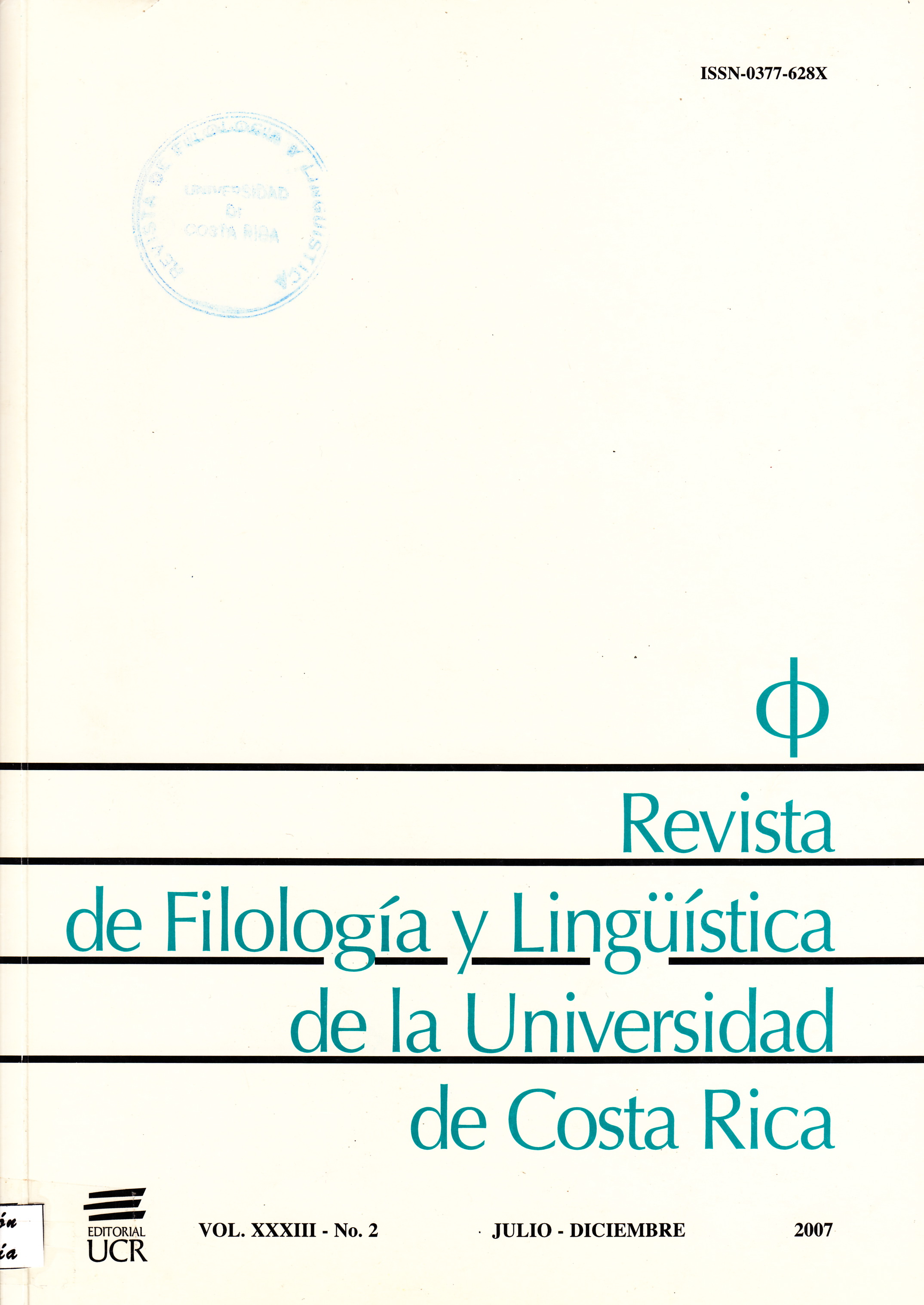Abstract
Conspiración, the most recent novel of Gloria Elena Espinoza de Tercero, is a typical example of metafiction. In this study, we analyze the relationship of the narrator with (1) América, the protagonist who claims her autonomy in the text (2) the real characters who communicate with the narrator by means of e-mails and (3) the writer, who implicitly claims her authorship and ignores the challenge of the narrative voice.References
Amoretti Hurtado, María. 1998. “Autor y autoridad…Cuestión de principios”. Káñina, Revista de Artes y Letras, Universidad de Costa Rica. 22 (1): 9- 21.
Barthes, Roland. 1987. “La muerte del autor”. Susurro del lenguaje. Barcelona: Paidós.
Culler, Jonathan. 1981. “Presupposition and Intertextuality,” The Pursuit of the Signs. Ithaca: Cornell UP.
Eco, Umberto. 1977. Tratado de Semiótica General. Barcelona: Editorial Lumen.
Espinoza de Tercero, Gloria Elena. 1998. La casa de los Mondragón. León: Editorial Universitario UNAM-León.
(2005). El sueño del ángel. Managua: Editorial PAVSA.
(2005). Túnica de lobos. Managua: PAVSA.
(2007). Conspiración. Managua: Centro Nicaragüense de Escritores.
Foucault, Michel. 1979. “What is an Author”. Textual Strategies: Perspectives in Post-Structuralist Criticism. Josué Harari (ed.). Ithaca: Cornell UP, 141-60.
Freud, Sigmund. 2003. The Joke and Its Relation to the Unconscious. Joyce Crick (trad.). New York: Penguin Books.
Jiménez, Luis A. 2007. “Espacios narrativos en Túnica de lobos”. De casas, ángeles y lobos. Jorge Chen Sham (ed.). León: Universidad Nacional Autónoma de Nicaragua, 185- 199.
Kaelin, E.F. 1999. Texts on Text and Textuality. A Phenomenology of Literary Art. Amsterdam: Rodopi.
Picado, Manuel. 1983. “La literatura: entre el diálogo y la metalengua”. Káñina, Revista de Artes y Letras, Universidad de Costa Rica. 7 (1): 85- 90.
Tacca, Oscar. 1973. Las voces de la novela. Madrid: Gredos.

